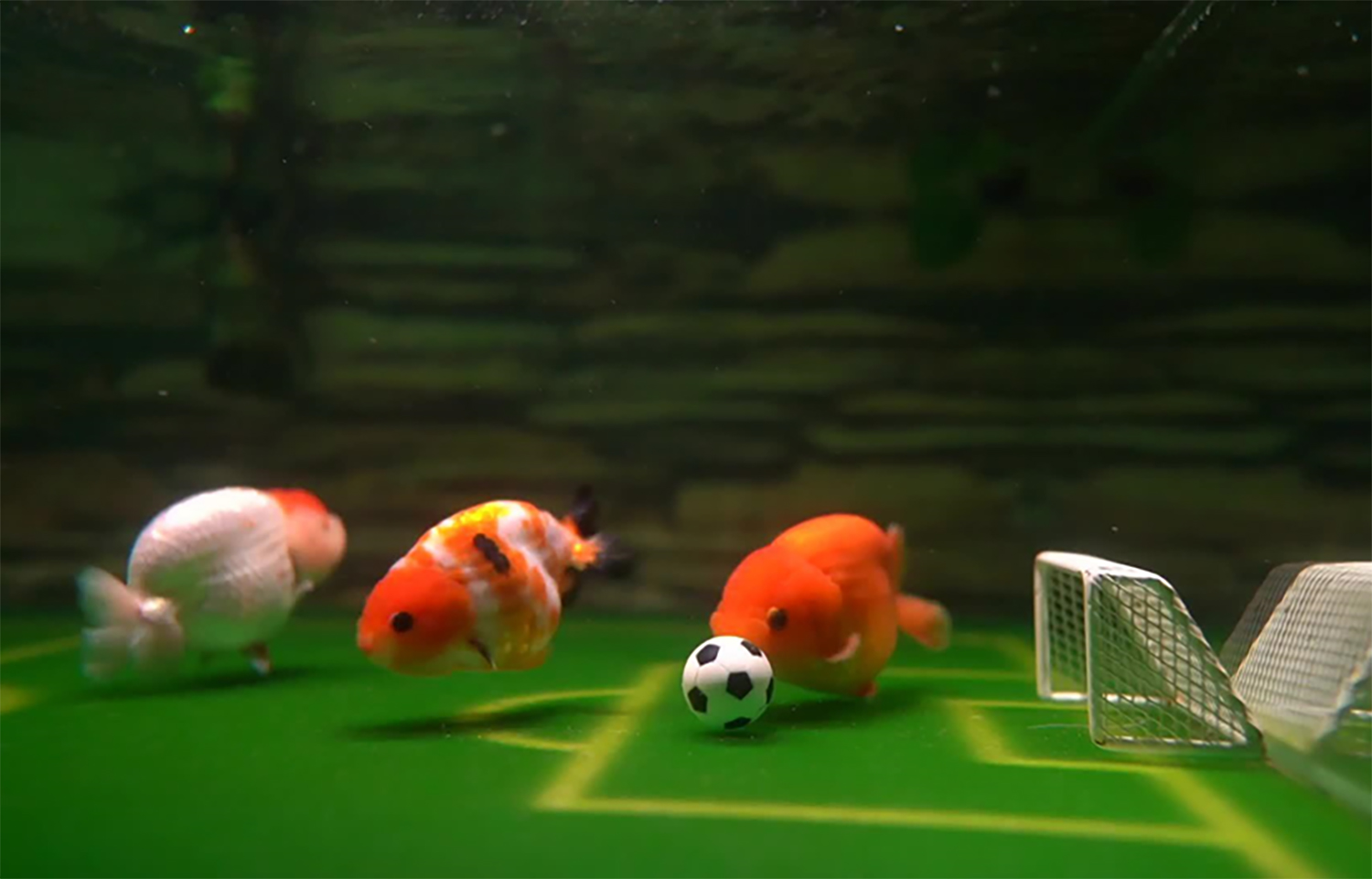Nearly four years ago, a Chinese man posted a YouTube video that was soon picked up by larger media outlets showing how he trained his Ranchu goldfish to play soccer.
Though the video was released just a handful of months into the Covid-19 pandemic, it has recently become a trending topic in Chile – not because of the recently completed Copa America soccer tournament, during which Chile crashed out in the group stage, but because an animal defense NGO is using it as evidence that fish are sentient beings.
Ignacia Uribe, founder and CEO of animal rights and vegan activist group Fundación Veg, was called in to testify before the Chilean Lower House of Congress’ fisheries committee regarding the fishing bill currently under negotiation in the nation’s legislature.
“You all may ask, ‘How conscious can a fish be?’” Uribe asked Chilean legislators. “The truth is that they’re more than numbers, more than tons; each fish is an individual, with its own personality, thoughts, interests, and memory. Within the same species, there are shy and bold fish. There are fish that have learned to play soccer, do tricks, and even use tools.”
Inspired by her testimony, Deputy Jorge Brito proposed adding to the legislation that fish be considered sentient animals. His proposed initiative would “respect the physical and mental state” of marine animals, defining sentient animals as “capable of having experiences and reacting to external stimuli consciously,” so they should be subject to “moral consideration and respect.”
Though Brito found the argument moving, it was largely met with disapproval and calls for the bill to focus on making other, more essential, improvements to the country’s fishing industry.
Alejandro Pérez, a marine biologist and academic at Chile’s Universidad Católica, said that the law’s focus should be on effective extraction techniques, how to add value to extracted species, and how to understand and minimize the impact generated by fishing.
“There is a humanization [in Uribe’s and Brito’s arguments] that does not make much sense, which leads to ridicule of the feelings of animals,” Pérez told BioBioChile.
In a post on social media platform X, Congressman Sergio Bobadilla said that Brito had “probably been advised by other sentient beings such as … Pikachu [and] the dinosaur” and accused Brito of “copy-pasting” the text from Fundación Veg.
Bobadilla himself had been one of three legislators previously accused of copying and pasting text …








